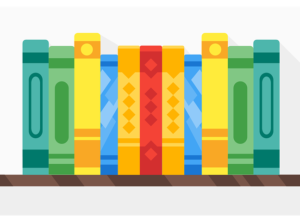Our Recommended Resources

Dyslexia Digital Library
|
Disclaimer: Please note Resource materials offered by IDA Oregon are for informational purposes only. These are websites, films, and books that many parents and professionals found useful in their personal searches for information on and about dyslexia. If you can’t find the local resources you are looking for, email us! We will put you in touch with other families and educators to help find what you need! email us at info@orbida.org
Online Resources
Online Articles: |
| Fact Sheets IDA fact sheets are convenient, professionally reviewed materials designed to improve understanding and support advocacy initiatives. |
| Corrigendum: Ending the Reading Wars: Reading Acquisition From Novice to Expert (2018) by A. Castles, K. Rastle, & K. Nation |
| A Parent’s Guide to Response to Intervention (RTI) from The National Center for Learning Disabilities |
| IDA Dyslexia Handbook: What Every Family Should Know |
| Dyslexia in the Classroom: What Every Teacher Needs to Know |
| Teaching Reading Is Rocket Science: What Expert Teachers of Reading Should Know and Be Able to Do (Moats, L. C.,1999. Washington, DC: American Federation of Teachers.) |
| Graceful Advocacy |
| Book Review: The Dyslexia Empowerment Plan |
| Where Does Having a Heart for Dyslexia Intervention Advocacy Start? |
Websites: |
| The International Dyslexia Association – Provides resources for professionals and families dealing with individuals with reading disabilities. |
| The Center for Effective Reading Instruction– The Center for Effective Reading Instruction (CERI), an affiliate of the International Dyslexia Association (IDA), offers professional certificates and certifications to qualified individuals teaching and supporting reading in public and private general, remedial, and special education settings. |
| The Academy of Orton-Gillingham Practitioners and Educators – Established and authorized expressly to set and maintain professional and ethical standards for the practice of the Orton-Gillingham Approach and to certify teachers and to accredit instructional programs that meet these standards. |
| Academic Language Therapy Association (ALTA) – A national professional member organization dedicated to the remediation of written language skills and certification of individuals trained in the remediation of written language skills. |
| Foundations in Learning – The Foundations Learning System (FLS) is a solution that applies recent advances in learning science to address the reading crisis. |
| Learning Ally – Provides recorded copies of reading materials including books and textbooks and have an extensive library in several convenient formats. |
| LD OnLine – Provides resources for parents and teachers on attention deficit disorder, dyslexia, dysgraphia, dyscalculia, dysnomia, reading difficulties, speech and related disorders. |
| National Center for Learning Disabilities – Provides information about learning disabilities, such as checklists, guides, videos, podcasts, Ask the Experts and FAQs. |
| The Reading League – Mission to advance the Awareness, Understanding, and Use of evidence-based reading instruction |
| Reading Rockets – Provides monthly newsletters with reading resources in helping struggling readers build fluency, vocabulary and comprehension skills. |
| Wrightslaw – Provides parents, educators, advocates, and attorneys with accurate, reliable information about special education law and advocacy for children with disabilities. |
| The Yale Center for Dyslexia and Creativity – Provides information and resources on the topic of Dyslexia |
| Understood – A collaboration of 15 nonprofit organizations providing online resources, and practical tips for parents and community members. |
Videos: |
| What Is Dyslexia? by Margie Gillis |
| Dyslexia and the Brain by Guinevere Eden |
| Embracing Dyslexia: The Interviews, by Dr. Ken Pugh |
| “It’s Never Too Late.” Leslie, Jeremiah, Mears Pam EdD. |
| “Journey into Dyslexia.” HBO. Produced by Alan and Susan Raymond, 2011. |
| “One by One. The Teachings of Diana King.” Hubbell, Harvey, Captured Time Productions. 2016. |
Our Recommended Books
Books for Parents |
| About Dyslexia by Priscilla Vail |
| The Between the Lions Book for Parents: Everything You Need to Know to Help Your Child Learn to Read by Linda K. Rath & Louise Kennedy (Ages PreK– 3) |
| Dysgraphia: Why Johnny Can’t Write: A Handbook for Parents and Teachers by Diane W. Cavey |
| Not Stupid Not Lazy – Understanding Dyslexia and other Learning Disabilities. Linda Siegel, 2016 |
| Overcoming Dyslexia: A New and Complete Science-Based Program for Reading Problems at Any Level by Sally Shaywitz, M.D. |
| Parenting a Struggling Reader: A Guide to Diagnosing and Finding Help for Your Child’s Reading Difficulties by Susan L. Hall and Louisa C. Moats, Ed.D. |
| Running the Distance by Jared Blank |
| Straight Talk About Reading: How Parents Can Make a Difference During the Early Years by Susan L. Hall and Louisa C. Moats, Ed.D. |
| Why Johnny Can’t Read: And What You Can Do About It by Rudolph Flesch |
| Why Johnny Still Can’t Read: A New Look at the Scandal of our Schools by Rudolph Flesch |
Books for Teachers |
| A Language Yardstick by Priscilla Vail |
| Beginning to Read: Thinking and Learning about Print – A Summary by Marilyn Adams |
| Developing Language and Literacy: Effective Intervention in the Early Years by Charles Hulme et.al |
| Developing Reading Comprehension by Charles Hulme et. al |
| Dyslexia, Dysgraphia, OWL LD, and Dyscalculia by Virginia W. Berninger and Beverly J. Wolf |
| Equipped for Reading Success by Kilpatrick, David. Casey & Kirsch Publishers; 2016 |
| Essentials of Assessing, Preventing, and Overcoming Reading Difficulties by Kilpatrick, David. Wiley, 2015 |
| Language at the Speed of Sight by Mark Seidenberg |
| Multisensory Teaching of Basic Language Skills, 2nd Edition by Judith Birsh |
| Phonemic Awareness in Young Children: A Classroom Curriculum by Marilyn Adams, Barbara R. Foorman, Ingvar Lundberg, and Terri Beeler |
| Preventing Reading Failure in Young Children by Catherine Snow |
| Proust and the Squid: The Story and Science of the Reading Brain by Maryanne Wolf |
| Reader, Come Home: The Reading Brain in a Digital World by Maryanne Wolf |
| Reading Development and Teaching by Morag Stuart and Rhona Stainthorp |
| Reading in the Brain: The New Science of How We Read by Stanislas Dehaene |
| Sounds and Letters for Readers and Spellers by Jane Fell Greene |
| Speech to Print by Louisa C. Moats, Ed.D. |
| Tales of Literacy for the 21st Century by Maryanne Wolf |
| The Reading Glitch by Lee Sherman and Betsy Ramsey |
| The Reading Mind: A Cognitive Approach to Understanding How the Mind Reads by Daniel T. Willingham |
| Understanding and Teaching Reading Comprehension: A Handbook by Carsten Elbro, Jane Oakhill, and Kate Cain |
| Unlocking Literacy, Effective Decoding and Spelling Instruction by Marcia K. Henry |
| What Reading Research Tells Us About Children with Diverse Learning Needs by Deborah Simmons and Edward Kaneenui |
| When Writing is a Problem by Regina Richards |
Books for Adults with Learning Disabilities |
| Dyslexia in Adults: Taking Charge of Your Life by Kathleen Nosek |
| Learning a Living: A Guide to Planning Your Career and Finding a Job for People with Learning Disabilities, Attention Deficit Disorder, and Dyslexia by Dale Brown |
| The Runaway Learning Machine: Growing Up Dyslexic by James Bauer |





